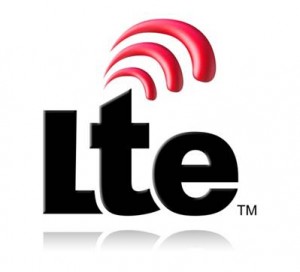Verizon’s 4G LTE Coming Soon, Running Quick

Trials in Boston and Seattle indicate the network is capable of peak download speeds of 40 to 50 megabits per second (Mbps) and peak upload speeds of 20 to 25 Mbps. The speeds are significantly faster than Verizon Wireless and other wireless providers’ current or promised 3G network speeds.
That is admittedly blazing fast but don’t expect those types of results on launch. Having thousands of consumers sharing bandwidth with good/bad spots and objects in the way and all the other variables Verizon says you can reasonably expect 5-12Mbps down and 2-5Mbps up.
Check out the full press release:
Verizon Wireless’ 4G LTE Network Testing Promises Significantly Faster Speeds Than Current 3G Networks
Available to 100 Million Americans in 25 to 30 U.S. Markets by End of 201003/08/2010
BASKING RIDGE, NJ — Verizon Wireless announced today that its 4G Long Term Evolution (LTE) network field trials in the United States have demonstrated wireless data speeds that are significantly faster than today’s 3G network speeds. Trials in Boston and Seattle indicate the network is capable of peak download speeds of 40 to 50 megabits per second (Mbps) and peak upload speeds of 20 to 25 Mbps. The speeds are significantly faster than Verizon Wireless and other wireless providers’ current or promised 3G network speeds.
Verizon Wireless has been testing its forthcoming 4G LTE network in both Boston and Seattle since August, 2009. Successful data calls involved streaming video, file uploads and downloads, and Web browsing, as well as calls with Voice over Internet Protocol (VoIP) to enable voice transmissions over the LTE network. Verizon Wireless engineers report LTE average data rates of 5-12 Mbps on the downlink and 2-5 Mbps on the uplink in real-world environments and will offer Verizon Wireless customers mobile browsing speeds comparable to customers’ current, typical online Internet experience.
“Our LTE rollout plan positions Verizon Wireless to be a global leader in 4G LTE deployment. We are on track to deliver an outstanding wireless data experience to customers in 25 to 30 markets covering roughly 100 million people by year’s end,” said Tony Melone, senior vice president and chief technical officer at Verizon Wireless. “As device makers, manufacturers and others around the world begin to introduce newer and faster products to take advantage of these incredible new speeds, Verizon Wireless will be positioned to offer our customers new and exciting products on the nation’s first 4G LTE network.”
By leveraging its 700 MHz spectrum for LTE deployment in the United States, Verizon Wireless is capable of quickly deploying a high-quality wireless broadband network with excellent coverage and in-building penetration. Verizon Wireless is currently installing LTE equipment at existing cell sites and switching centers around the United States as part of its extensive, ongoing investment in its voice and data network infrastructure.
I’m really digging the “100 million Americans in 25 to 30 markets by end of 2010” and I’m pretty sure that once a Verizon LTE Android Phone drops (maybe the Droid 2 for the holidays?), I’ll be on that sucker like white on rice.